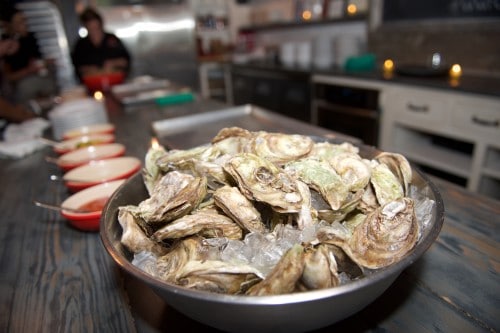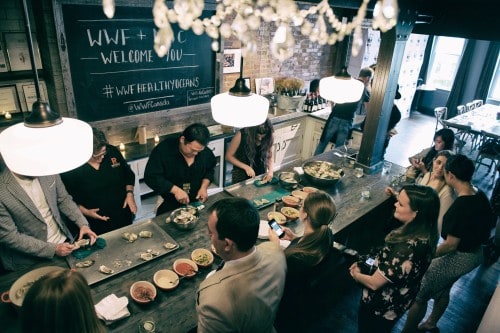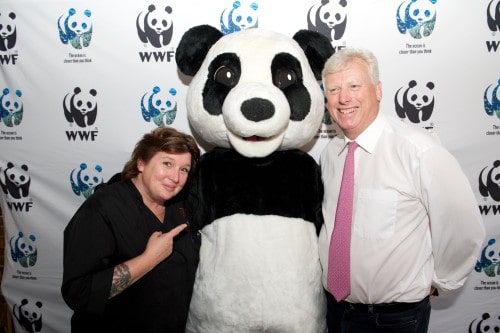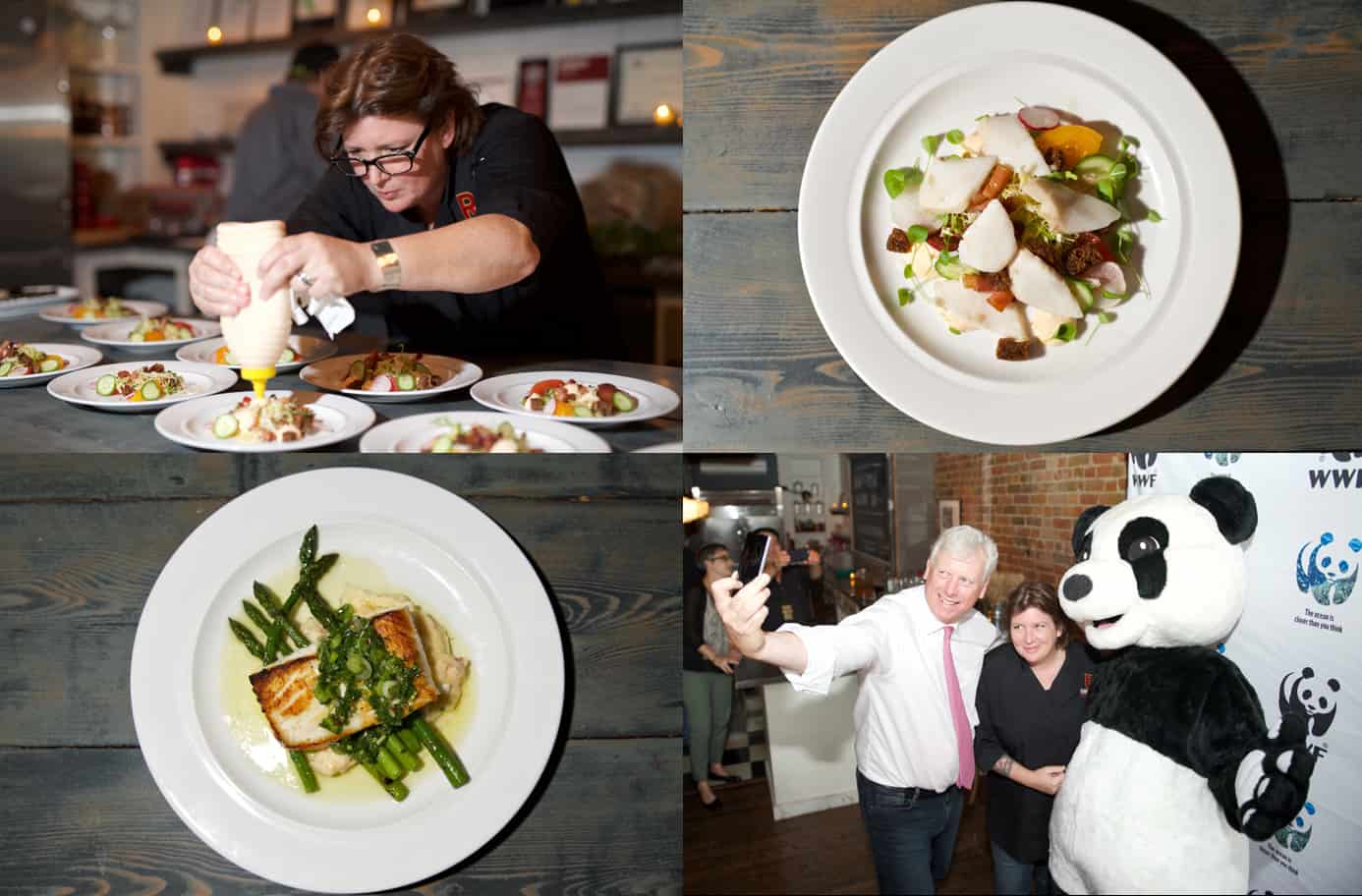There is a myth about the ocean that goes something like this: the ocean is too big to fail. Even if we cause too much damage now, the system will repair itself and magically replenish its riches.
Bullshit.
This myth has proven false in the modern era, often with devastating consequences. The Atlantic cod fishery collapse of the late 80s and early 90s is a cautionary tale that is sadly repeating itself worldwide. The United Nations Food and Agriculture Organization estimates as much as 85% of world fisheries are now pushed to their limit or beyond.
Food that we harvest from our waterways seems to be the last bastion of agricultural piracy, dragging and drifting nets that scrape and choke the marine environment – a slash-and-burn mentality long replaced on land with kinder and more sustainable practices.
So why do seafood harvesting practices lag so far behind and what is being done? There was a push for dolphin-proof tuna nets, which has since been fully implemented. But besides that, how does one police this moving target of fishing boats?
The required regulations need to come from governing bodies like the Marine Stewardship Council (MSC), but ultimately, the consumer will have the biggest impact. Unless the bottom line is severely affected, most companies will resist change and regulation.
Meat from land animals goes through an increasingly rigorous quality and classification process with categories like organically fed or AAA. Fruits and veggies are also judged and graded according to sustainable and organic growing conditions. Yet the seafood market is taking its sweet time coming onboard.
 As a consumer, you now have a choice. When you’re buying seafood, you can look for the MSC symbol, an international certification awarded to sustainable, low-impact fishing operations. Now the choices you make at your local Loblaws can directly encourage a productive aquatic eco-system. You have the power!
As a consumer, you now have a choice. When you’re buying seafood, you can look for the MSC symbol, an international certification awarded to sustainable, low-impact fishing operations. Now the choices you make at your local Loblaws can directly encourage a productive aquatic eco-system. You have the power!
 Sustainably harvested seafood in no way needs to be boring or limited. We were recently invited to Ruby Watchco to see for ourselves how far the movement has come. We feasted on smoked Pacific Black Cod and pan seared Pacific Halibut with green onion chimichurri (both were exquisite!) then finished off the night with an ultra-rich, deconstructed s’more dessert.
Sustainably harvested seafood in no way needs to be boring or limited. We were recently invited to Ruby Watchco to see for ourselves how far the movement has come. We feasted on smoked Pacific Black Cod and pan seared Pacific Halibut with green onion chimichurri (both were exquisite!) then finished off the night with an ultra-rich, deconstructed s’more dessert.
We also got to hang with President and CEO of WWF-Canada, David Miller, shuck oysters with Chef Lynn Crawford and snap selfies with a man in a panda suit (as one does).
 Off the coast of Newfoundland, there is only just now talk of a cod recovery. It has taken a generation. Some of the damage we have done will take years to repair with some eco-systems being altered permanently. But at least now we can envision the path toward permanent change.
Off the coast of Newfoundland, there is only just now talk of a cod recovery. It has taken a generation. Some of the damage we have done will take years to repair with some eco-systems being altered permanently. But at least now we can envision the path toward permanent change.
It reminds one of an ancient Chinese proverb: The best time to plant a tree was twenty years ago, the next best time is right now. It may be too late for some aquatic eco-systems, but at least now we can make choices to help prevent further cycles of destruction, and continue to enjoy our favourite sea offerings for years to come.



 Follow Us On Instagram
Follow Us On Instagram
